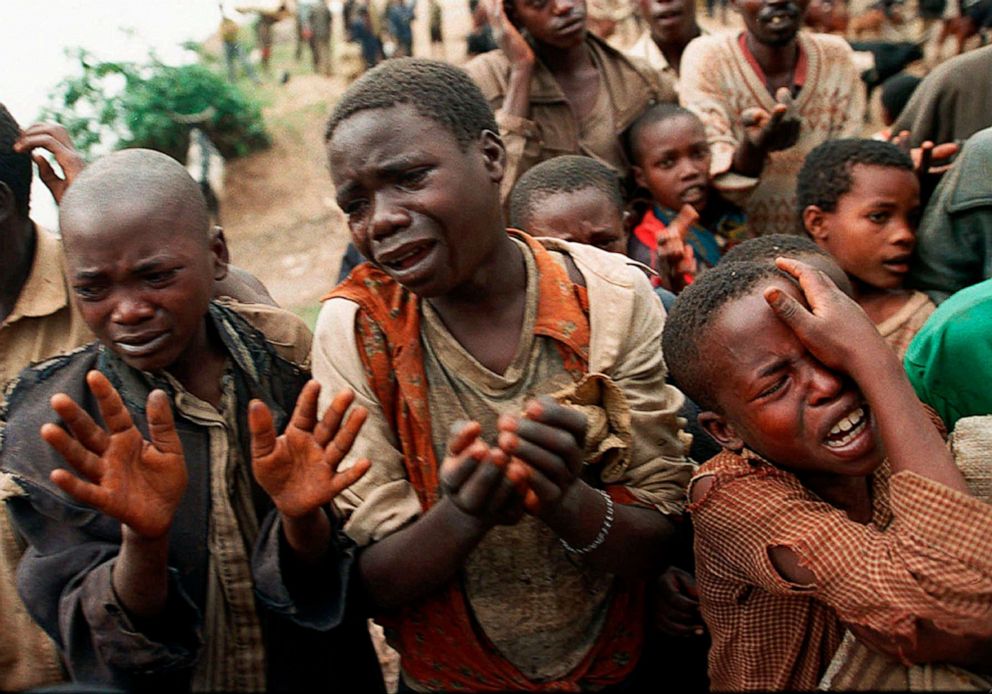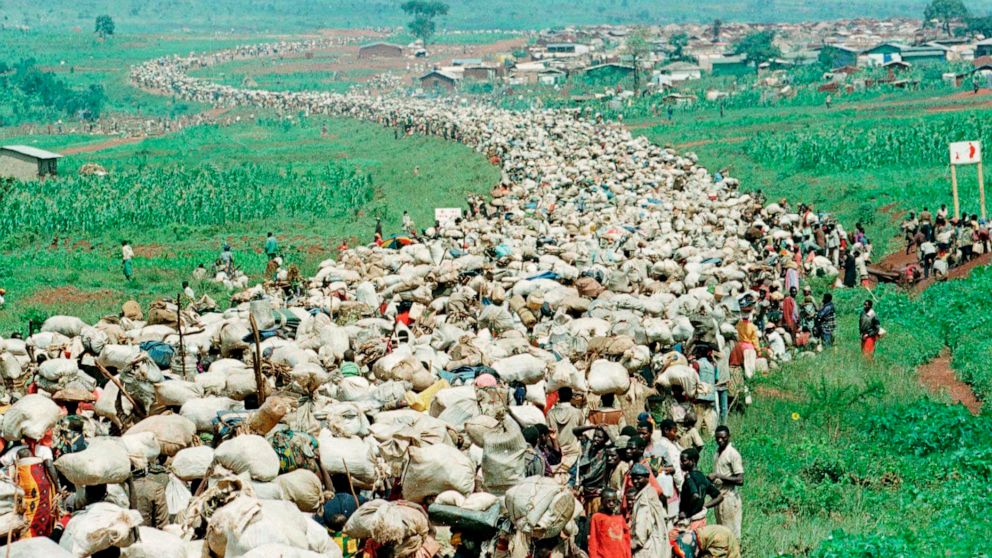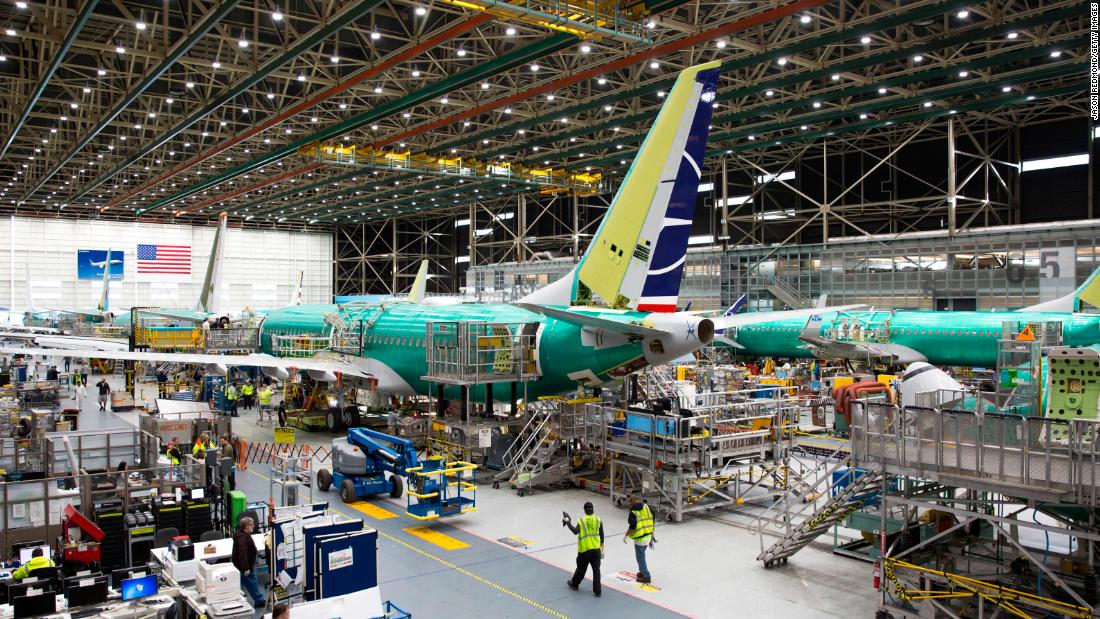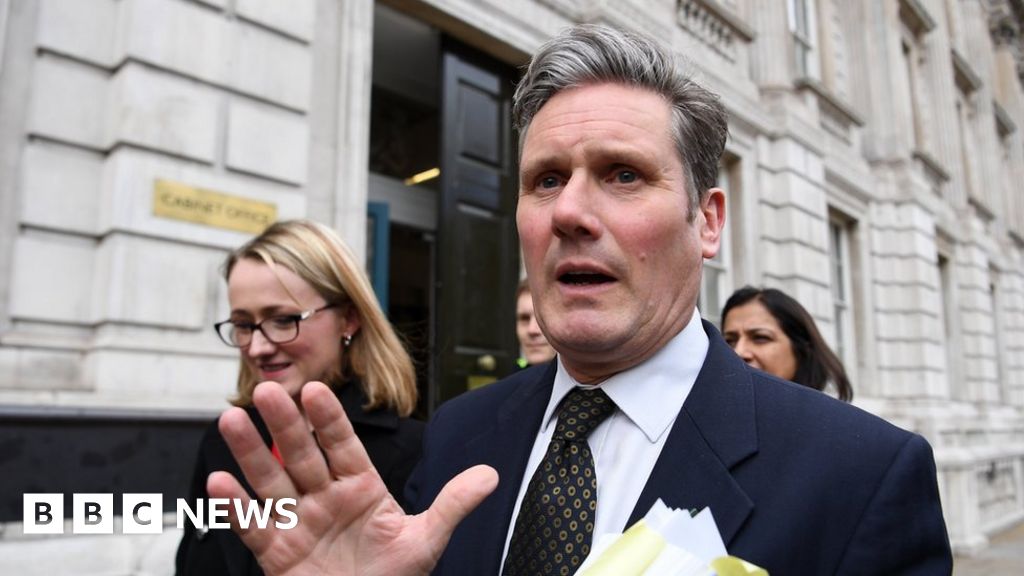Remembrance ceremonies began around the world this week to mark the 25th anniversary of the Rwandan genocide.
For nearly 100 days in 1994, the Hutu majority in this small central African nation launched a purge against the Tutsi minority. The violence began after a plane carrying Rwanda’s Hutu president, Juvenal Habyarimana, was shot down by unknown assassins.
Violence spread rapidly across the country. The number of those who perished in the mayhem is estimated to be more than 800,000, according to the United Nations. Thousands more were maimed and injured.
The ruling Hutu majority at the time was held responsible for organizing the call for mass murder of its fellow citizens, using radio stations to spread the word. Philip Gourevitch, a journalist who reported on the genocide, wrote, “the entire Hutu population was called upon to kill the entire Tutsi population.”
Hutus turned on their neighbors with machetes and knifes, and corpses by the thousands were dumped in rivers or left in mass graves.
U.N. Secretary General Antonio Guterres said this week that these 100 days were some of the darkest chapters in recent human history, and warned that current trends towards xenophobia and racism are danger signs.
"Wherever they occur, hate speech and incitement to violence should be identified, confronted and stopped to prevent them leading, as they have in the past, to hate crimes and genocide," Guterres said. "This is the best way to honor those who lost their lives so tragically in Rwanda 25 years ago."
 (Jean-marc Bouju/AP, FILE) Rwandan refugee children plead with Zairean soldiers to allow them across a bridge separating Rwanda and Zaire where their mothers had crossed moments earlier before the soldiers closed the border, in Zaire, now known as Congo, Aug. 20, 1994.
(Jean-marc Bouju/AP, FILE) Rwandan refugee children plead with Zairean soldiers to allow them across a bridge separating Rwanda and Zaire where their mothers had crossed moments earlier before the soldiers closed the border, in Zaire, now known as Congo, Aug. 20, 1994.
Visitors to Kigali, the Rwandan capital, now flock to a somber museum dedicated to genocide where photos and videos of the terror that swept through Rwanda are shown alongside testimonies from survivors. Thousands of visitors each week come to pay their respects to the 250,000 who are buried on the grounds, and honor the memory of the hundreds of thousands of others killed.
But on another quiet street of the city, work continues for the Rwanda Genocide Fugitive Tracking Unit (GFTU). Formed in 2007, this team of local and international investigators continues to probe the origins of the genocide and works to bring surviving perpetrators to justice.
Many high-profile cases were prosecuted at the U.N.-supported International Criminal Tribunal for Rwanda, which was based in Tanzania but closed in 2015. Others suspected of involvement were tried in Rwandan courts. According to the Rwandan National Public Prosecution Authority, nearly 2 million people were charged -- two thirds of them convicted.
 (Jean-marc Bouju/AP, FILE) FILE - In this Dec. 19, 1996, file photo, tens of thousands of Rwandan refugees, who have been forced by the Tanzanian authorities to return to their country despite fears they will be killed upon their return, stream back towards the Rwandan border on a road in Tanzania. (AP Photo/Jean-Marc Bouju, File)
(Jean-marc Bouju/AP, FILE) FILE - In this Dec. 19, 1996, file photo, tens of thousands of Rwandan refugees, who have been forced by the Tanzanian authorities to return to their country despite fears they will be killed upon their return, stream back towards the Rwandan border on a road in Tanzania. (AP Photo/Jean-Marc Bouju, File)
Yet, many key suspects are still on the run according to the GFTU. They are reportedly hiding in Europe and other African countries. One of the alleged financiers of the attack was recently spotted in Kenya.
The U.N., the U.S. and former colonial power Belgium were heavily criticized for doing too little too late to stop the genocide. U.N. peacekeeping troops were not authorized to fully intervene in preventing the bloodshed. In April 2000, on the sixth anniversary of the genocide, the U.N. Security Council publicly admitted that the U.N. should accept some blame for failing to prevent what happened.
Former President Clinton has called the failure to intervene in Rwanda one of his biggest regrets.
"I do feel a lifetime responsibility," he told ABC News in 2008, while on a trip to the country. "I feel like a lot of people … had something to do with it."
In further interviews in 2013, Clinton said he believes that had the U.S. intervened, even marginally, at the beginning of the genocide, at least 300,000 people might have been saved.
Rwanda, under President Paul Kagame, has been working on national reconciliation. Kagame, a Tutsi, led fighters in 1994 that ended the fighting. He has been president of the country since 2000.
When the Tutsis regained control of Rwanda after the genocide, a large-scale exodus of Hutus to neighboring countries began. Many eventually returned. Many did face some sort of justice, which has brought some measure of reconciliation. Now Hutus and Tutsis live side by side in peaceful coexistence, but memories of the genocide are always present.
https://abcnews.go.com/US/rwanda-genocide-remembered-25-years/story?id=62140174
2019-04-06 14:21:14Z
52780261235902







